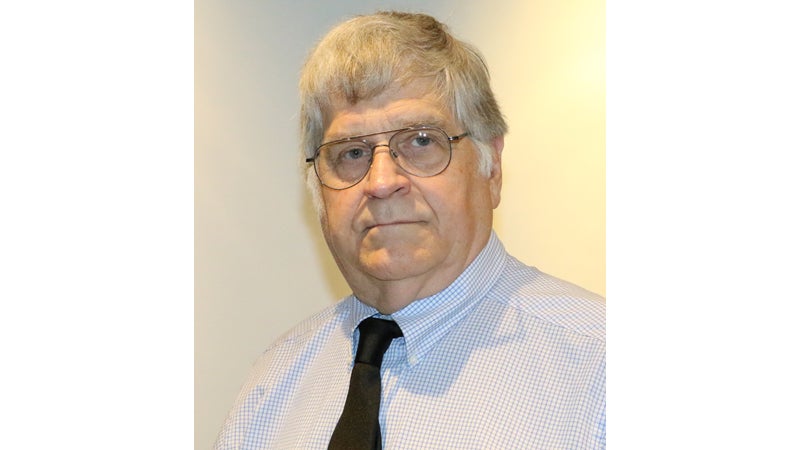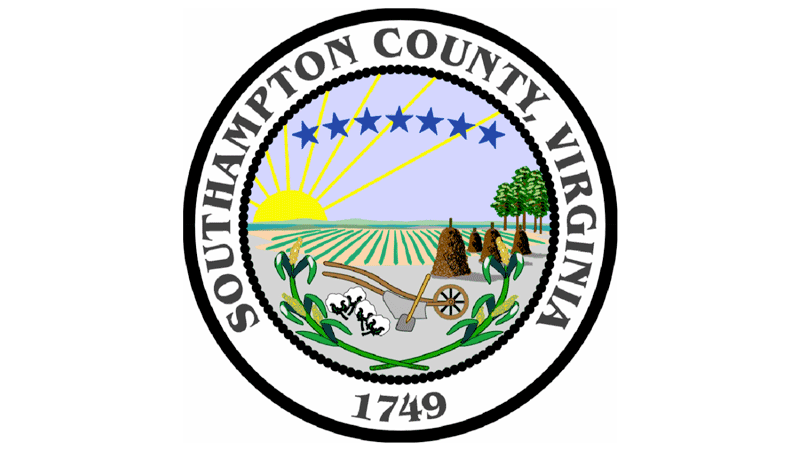Numerous IW residents speak on invocation prayer, bike path
Published 1:02 pm Saturday, August 19, 2017
ISLE OF WIGHT
Controversy over a proposed multi-use bike trail and the Isle of Wight County Board of Supervisors’ policy of giving a religious invocation prior to the start of every meeting drew a crowd at the Board’s meeting on Thursday, with around 20 people choosing to speak during citizens’ time.
The controversy over the Board’s invocation policy occurred as a result of a July 14 decision by the Fourth Circuit Court, finding that Rowan County, North Carolina’s policy of having a legislative prayer was unconstitutional as a violation of the Establishment Clause. County Attorney Mark Popovich brought the matter to the Board’s attention after discovering that the Isle of Wight’s legislative prayer policy was worded exactly like that of Rowan County.
Popovich said the county has five options for amending its invocation policy to be in compliance with the Fourth Circuit Court’s ruling: they can allow any citizen in attendance at a public meeting to give an invocation on a first-come, first-serve basis; they can give all religious congregations in Isle of Wight County the opportunity to offer an invocation at each meeting; they can develop a standard, non-sectarian invocation that is repeated at every meeting by a designated Board member; they can dispense with an invocation and hold a moment of silence instead; or they can dispense with the invocation altogether.
Speakers who voiced their opinion on the county’s invocation policy included Sam and Debbie Bales Cratch, John Williams, Herb DeGroft, Deborah Hall and Shelly Perry. All except Williams spoke in support for having an invocation at the beginning of public meetings.
“This country was formed many years ago by a group of men who were deeply entrenched in the word of God, and I firmly believe the reason this country has flourished in such a short amount of time is because it is based on Biblical principles,” Sam Cratch said. “I realize there are a lot of different religions; we can live beside a man who is Muslim or Buddhist, but if you have someone trying to say, ‘You can’t do that’… this is a slippery slope.”
“[Prayer] should be done at every board meeting, every ball game, everywhere,” Perry said. “I’m going to give you a phrase my dad used to use, ‘If you don’t like it, don’t let the a** kick you on the way out.’ Everything is being taken away from us because of a few people… The back of a dollar bill and on your pennies says ‘In God we trust.’”
However, Williams said he did not feel prayer belonged in a public, secular government meeting.
“Has praying to Jesus allowed you to remove excess fluoride from your drinking water?” he asked. “Are those churches [in Isle of Wight] helping to make up the $7.9 million for our public high schools? With these churches still being predominantly segregated, they are not helping our communities.”
The controversy over the multi-use trail occurred following the county staff’s recommendation to the Board during a special called meeting on Aug. 3 to reallocate funds budgeted for improvements to Broadwater Road (Route 620), which runs from Smithfield to Ivor, for the purpose of funding the trail. Staff recommended the reallocation after receiving bids for the trail’s construction approximately $2 million higher than what had been estimated for the project.
Speakers advocating in favor of funding the trail included Greg Vasfilakof, Ed Easter, Teresa Frantz, Kerri Lindsay, Karen Mehart, Katherine Cooper, Chris Dunham, Leigh Abbott Leaman, Andy Cripps and Sheila Bates. Speakers advocating against funding the bike trail included Jane March, DeGroft, John Butler, and Jose Hernandez.
Frantz and Cooper both felt the trail would help people without vehicles get around town. Leaman and Cripps both felt it would encourage growth and development.
However, March said that roads like 620 and others in the Zuni area are in need of repairs, and presented her petition concerning the condition of Fire Tower Road in Windsor to the Board. DeGroft argued that the trail, in addition to being costly to build, would be expensive to maintain.
Butler said he owns two farms in the vicinity of Route 620 and that it is very dangerous for him to move his farm equipment on the road given its current condition.
Another matter discussed during citizens’ time was the presence of Confederate monuments in the county.
Valerie Butler, representing the local chapter of the NAACP, said she had received several phone calls from county residents regarding the violence in Charlottesville last weekend, expressing concern that something similar would happen soon in Isle of Wight. She asked the Board to discuss the matter and suggested taking down the monument in front of the county government building.
When it came time for the Board to respond to the numerous citizens’ comments they had received, Newport District Supervisor William McCarty, who also serves as pastor of Healing Waters Worship Center in Carrollton, said that he felt society as a whole had reached a point where people were tolerant of everybody except those who mention Jesus, but suggested that the county conduct a survey to gather more input before making any decision regarding its policy on invocations.
On the issue of Confederate monuments, he said, “I will make this statement as it relates to hate groups, the KKK, neo-Nazis, white supremacists; if hate is our rule, nobody wins. With any monument, I may not necessarily celebrate what they did but those monuments do remind me of what I never want to be.”
Hardy District Supervisor Rudolph Jefferson said he didn’t feel anyone on the Board had any desire to stop praying, but liked the idea of having a citizen come up and give an invocation.
The Board ultimately voted unanimously to table taking any action on its invocation policy until a survey could be drafted and sent to the population, also citing the possibility that the Fourth Circuit Court’s decision may be appealed. They also took no action on the bike trail.
In other business, the Board voted unanimously to change the wording of its ordinance classifying certified pollution control equipment and facilities as a separate tax class from standard machinery and tools or real estate taxes to have its definition of certified pollution control better match that of the General Assembly.
They also voted unanimously to refinance a general obligation bond in order to eventually save $2 million they would have had to pay in interest.





